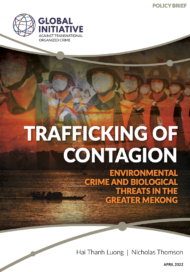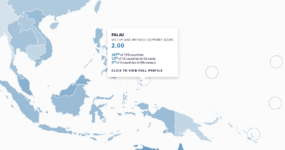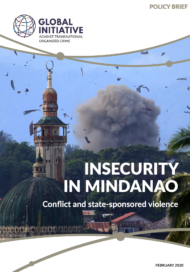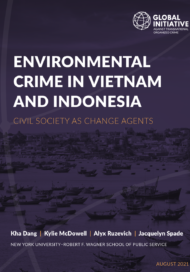Event Details
Where
Online event - Global Initiative's Conference Room
Posted on 06 Apr 2022
Most of the vast number of commodities derived from wildlife and other environmental resources that are traded illicitly across the Greater Mekong Subregion (GMS) have direct or indirect implications for biological threats. The most serious of these is the risk of zoonotic pathogens and their implications for health.
Since the 2000s, increasing focus on the role played by transnational organized crime in the illegal wildlife trade has resulted in such forms of crime being tackled through a number of security approaches, but primarily through law enforcement interventions. However, the COVID-19 pandemic has provided a unique opportunity to explore alternative strategies, namely ones that focus on health risk. Health is increasingly now recognized as a critical requirement for global security, as guaranteeing the public health of nations is critical for security and stability.
Illegal trafficking of wildlife and timber are the most commonly referenced forms of environmental crime. However, there is an expanding suite of other kinds of environmental crimes that are both transnational in nature and have significant implications for biological threat in terms of the risk of contagion. Among these are river-sand mining, jade mining, and the destruction of natural habitats under the guise of development.
This paper explores the relationships between environmental crime, law enforcement and biological threat preparedness and response in the Greater Mekong Subregion of South East Asia. This has highlighted the need for greater biological threat awareness at the policy level, and its incorporation into environmental crime enforcement strategies. This approach necessitates a better understanding of biological threats among security sector actors, and their need to cultivate partnerships with health sector agencies in tackling environmental crime. A greater degree of cross-border and cross-sector awareness and partnerships will improve the enforcement of environmental crimes and increase biological threat surveillance, preparedness and response.
To address this issue, we recommend the following actions:
- Redefine health as a national security priority
- Increase partnership between enforcement and health
- Increase investment and resources
- Donor organizations and NGOs to classify biological threats as security concerns
- Further research to guide future projects




